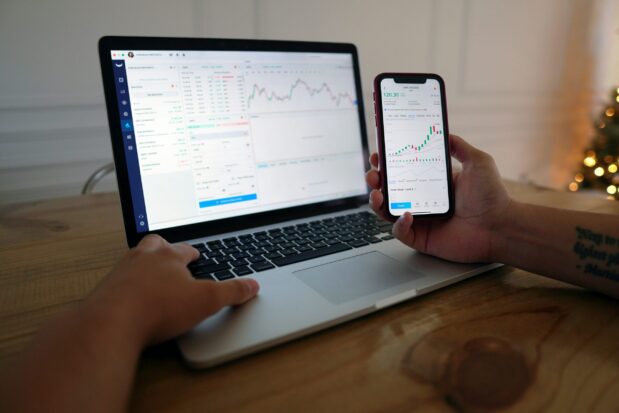Today, I will explain the following website. (AI-generated)
トランプ大統領の「機嫌によって変わる関税」が勝利できない理由(ハンギョレ新聞) – Yahoo!ニュース
Contents
Understanding the Impact of Tariffs in Forex Trading
Tariffs are a form of tax imposed on imported goods, which can influence currency exchange rates by affecting trade balances and economic sentiment. When tariffs are introduced or altered, they can lead to changes in the relative strength of currencies, as traders anticipate the impact on a country’s economy. For instance, if the United States imposes high tariffs on imports, it might initially strengthen the USD due to expected trade surplus, but over time it could weaken the currency if it leads to a global trade war and economic slowdown.
What Are Tariffs and How Do They Affect Currency Exchange Rates?
Tariffs are used to restrict imports by increasing the price of goods and services purchased from another country, making them less attractive to consumers. This can lead to a decrease in import volume, potentially improving a country’s trade balance, which can be positive for the currency. However, higher tariffs can also lead to retaliation from other countries, reduced global trade, and increased costs for consumers and businesses, which can negatively impact the currency in the long term.
Analyzing President Trump’s Tariff Policies and Their Consequences
President Trump’s tariff policies, often characterized by sudden changes and unpredictability, have had a complex impact on the forex market. Initially, such policies might have been seen as positive for the US dollar as they aimed to reduce the trade deficit. However, the long-term effects included increased costs for US companies and consumers, which could lead to economic slowdown and potential negative effects on the dollar.
Strategies for Forex Traders in Times of Trade Wars and Tariff Changes
Forex traders should stay informed about international trade policies and be prepared to adjust their strategies quickly. In times of trade wars and tariff changes, traders might consider hedging their positions, diversifying their portfolio, or focusing on currencies less likely to be affected by trade tensions. Monitoring economic indicators and staying up-to-date with political developments can also be crucial for making informed trading decisions.
Case Study: The Paradox of Tariff Imperialism
How Tariffs Impacted Major Corporations Like Ford and General Motors
Major corporations such as Ford and General Motors have felt the direct impact of tariffs, which have led to increased costs for imported components and raw materials. These additional costs can result in reduced profits or even losses, as companies may not be able to pass the full cost onto consumers. The forex market reacts to these corporate financial outcomes as they can influence economic forecasts and currency strength.
Consumer Prices and the Butterfly Effect of Global Tariffs
The imposition of tariffs can lead to a butterfly effect, where the initial impact on trade policies can have far-reaching consequences on global economies. As tariffs increase the cost of goods, consumer prices can rise, leading to decreased purchasing power and potential inflation. These economic shifts are important for forex traders to monitor, as they can affect currency value and market stability.
Long-term Economic Projections: Stagflation and Reduced GDP Growth
Economists have raised concerns about long-term economic projections, such as stagflation, which combines stagnation with inflation, and reduced GDP growth. These conditions can lead to a less favorable investment climate and can negatively impact a country’s currency. Forex traders must consider these projections when planning their long-term trading strategies.
Global Responses and the Future of Trade
Examining the Global South’s Solidarity Against Tariff Imperialism
The Global South, consisting of developing countries primarily in the Southern Hemisphere, has shown solidarity in response to unilateral tariff impositions. These countries are exploring joint measures to counteract the negative effects of tariff imperialism, and such geopolitical shifts can create volatility in the forex market, presenting both risks and opportunities for traders.
Trump’s ‘Whimsical’ Tariff Rates and International Relations
President Trump’s unpredictable tariff policies have affected international relations and caused fluctuations in tariff rates. This unpredictability can lead to market uncertainty, which can be challenging for forex traders. It’s important for traders to stay agile and responsive to sudden policy shifts that could affect currency pairs.
BRICs Countries and Their Strategy to Counter Unilateral Tariffs
The BRICs countries (Brazil, Russia, India, China, and South Africa) have been central to discussions about forming a collective response to unilateral tariffs. These emerging economies are significant players in the global market, and their strategies to counter tariffs can influence global trade dynamics and forex markets. Monitoring the responses and strategies of BRICs countries is important for forex traders looking to understand potential market movements.











